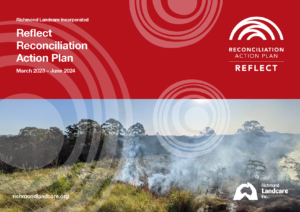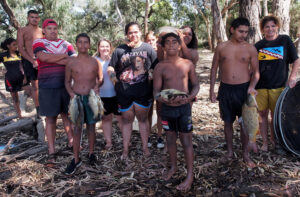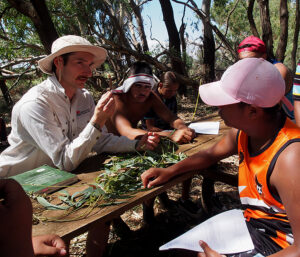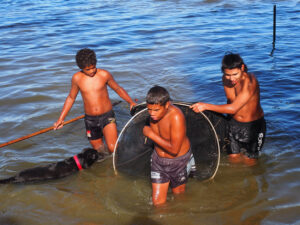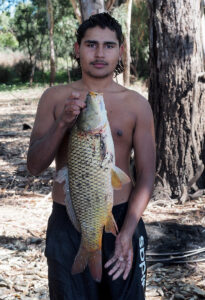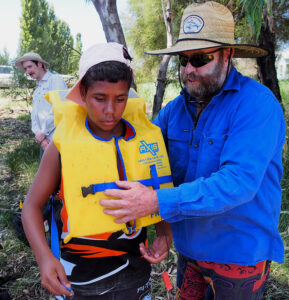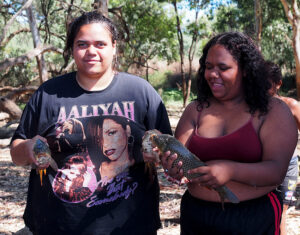Landcare NSW has welcomed the announcement by Greens MP and spokesperson for the environment, Sue Higginson, who has called on both Labor and the Coalition to join The Greens NSW and take a tri-partisan approach to the NSW Landcare program and deliver a $59 million funding commitment over the next four years.
Landcare NSW CEO Turlough Guerin said: “It is imperative that the Government continues to fund Landcare in NSW and the 100 regional and rural jobs it supports through the NSW Landcare Program. Landcare across NSW stands ready to help the Government respond to the many environmental challenges we all face.”
Greens MP and spokesperson for the environment, Sue Higginson, has called on both Labor and the Coalition to join The Greens and take a tripartisan approach to the NSW Landcare program and to deliver a $59 million funding commitment over the next four years.
Volunteering is at the heart of Landcare. There are an estimated 60,000 Landcarers in NSW alone. Since the last tranche of State Government funding, Landcarers across the state have been significantly impacted by natural disasters such as drought, fire and floods. Under the new Program proposed by Landcare NSW, increased Landcare Coordinator support would ensure it can continue to build capacity in rural and regional communities and expand the regional Aboriginal coordinator positions across the state to consciously develop and strengthen connections between Landcare groups and Aboriginal communities.
Landcare is a unique community and government partnership focused on managing and restoring Australia’s natural environment and improving the sustainability of agriculture. It is a democratic, grassroots movement that brings together people of all ages, cultures and socio-economic backgrounds, including First Nations people, and encourages the development and implementation of local processes to shift attitudes and practices towards sustainable resource use and management.
A total of $86 million of benefits has been attributed to the current four-year NSW Landcare Program due to finish on 30 June 2023, and the work of 84 Landcare coordinators employed across NSW, compared to a total program investment of $22.5 million.
This equates to a net benefit of $63.5 million over the four-year delivery period, and an estimated economic return of $3.83 per dollar of investment. Modelling, based on current NSW Treasury guidelines, predicts that an investment of $58.8 million for the next four-year period can deliver benefit valued at over $217 million.
Sue Higginson said: “Landcare is one of the most important volunteer networks in the country. For well over 30 years, it has been the backbone of supporting farmers and the community to care for land across NSW and Australia. One of the greatest strengths of the Landcare movement is that it builds community capacity, social capital and leadership by empowering local volunteers to engage with locally run, locally designed and locally relevant landscape restoration, disaster preparedness and resilience projects. We should be investing in Landcare so it can continue its work.
“Working to care for our local environment has a positive impact on the mental and physical health of individuals, both volunteers and paid staff alike and the wellbeing of the communities they support. Landcare needs support to ensure that the valuable work our local Landcare groups do to protect and repair our environment is built upon.”
“Grassroots democracy and ecological sustainability are fundamental guiding principles of both the Greens and Landcare. The Greens are proud to support Landcare as an egalitarian, inclusive, democratic movement, driven from and for the community. Landcare is a proven and effective model. Few other “brands” enjoy as much trust and confidence in the community. It is disappointing that neither the Coalition nor Labor have yet committed to deliver the funding being asked for by Landcare NSW.”
“We don’t expect volunteers in other iconic Australian institutions such as the RFS, SES and Surf Lifesaving to operate without funding, policy and support from Government. A small investment in Landcare support will leverage massive goodwill, volunteer participation and will spur further investment at a local and regional level.
“The Greens want to work constructively with all parties and Landcare to help solve the problems faced by our communities. The environment is in a state of decline – it is something we all share and all have responsibility for. The proposed investment of $58.8 million should be the baseline funding to allow Landcare to continue supporting the community and ultimately help the Government to deliver on its priorities.”
“The Greens support the call from Landcare NSW to continue the critical work delivered through the NSW Landcare Program of state-wide coordination, capacity building and volunteer support and to ensure a Landcare funding commitment is made. For this to be successful, cross-party support is needed and the Greens are calling on Labor, Liberal and the National Party to support Landcare and provide a $59 million funding commitment over the next four years.” Ms Higginson said.
Photo shows: ReForest Now employee Tess Catoggio, in Upper Mongogarie where the Reforest Now team spent 3 days planting 23,258 trees in torrential rain. Photo credit: Franzi Kinzel.
